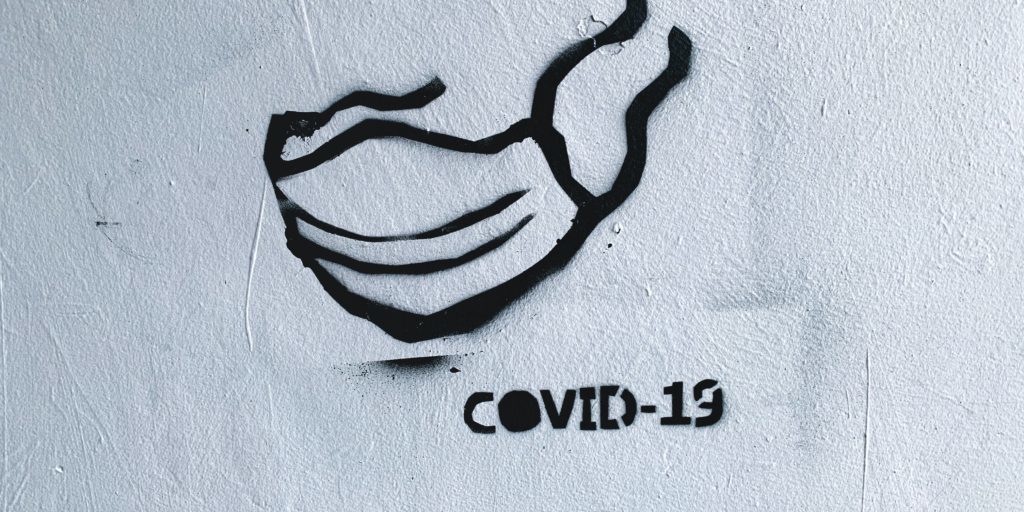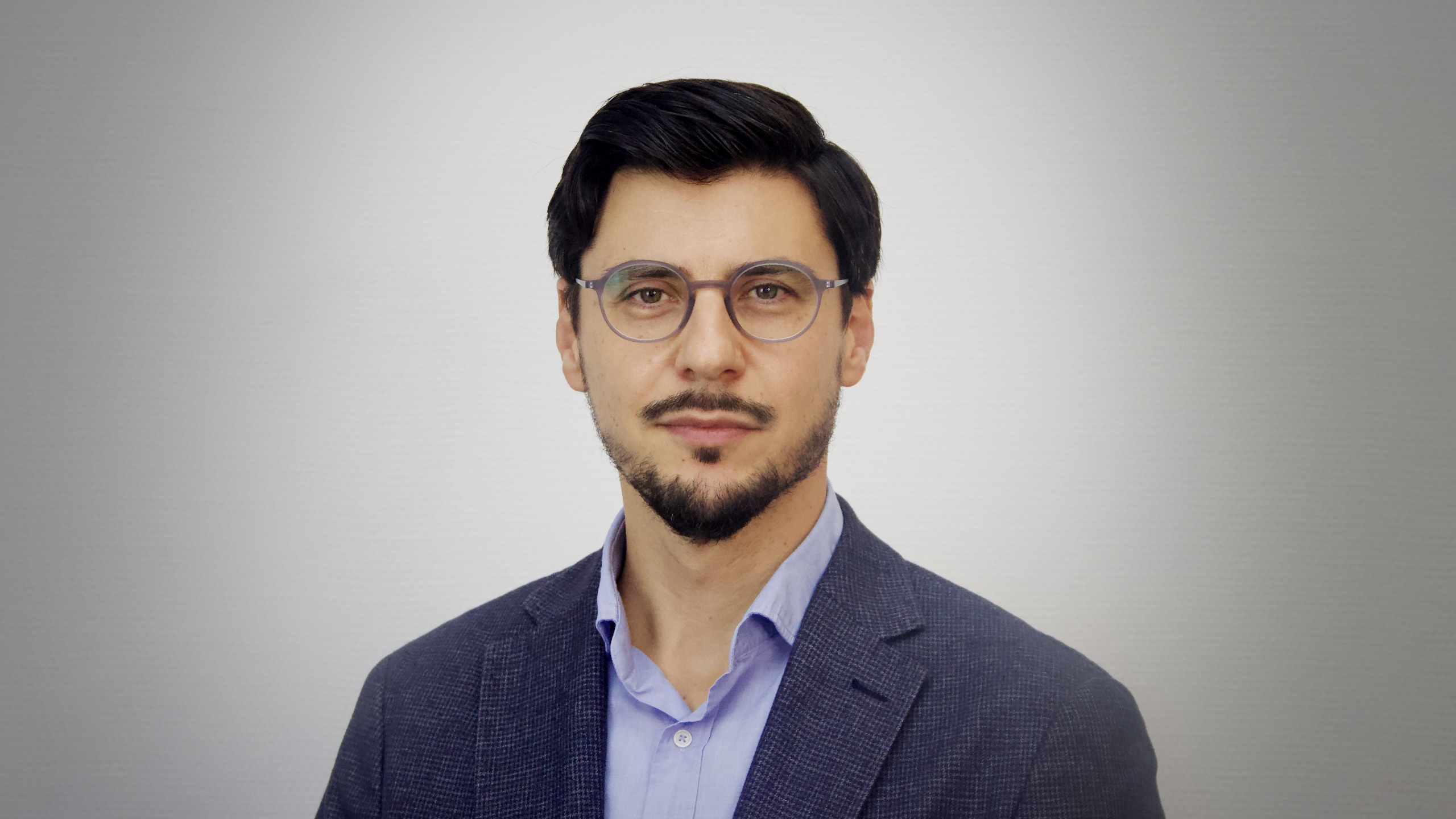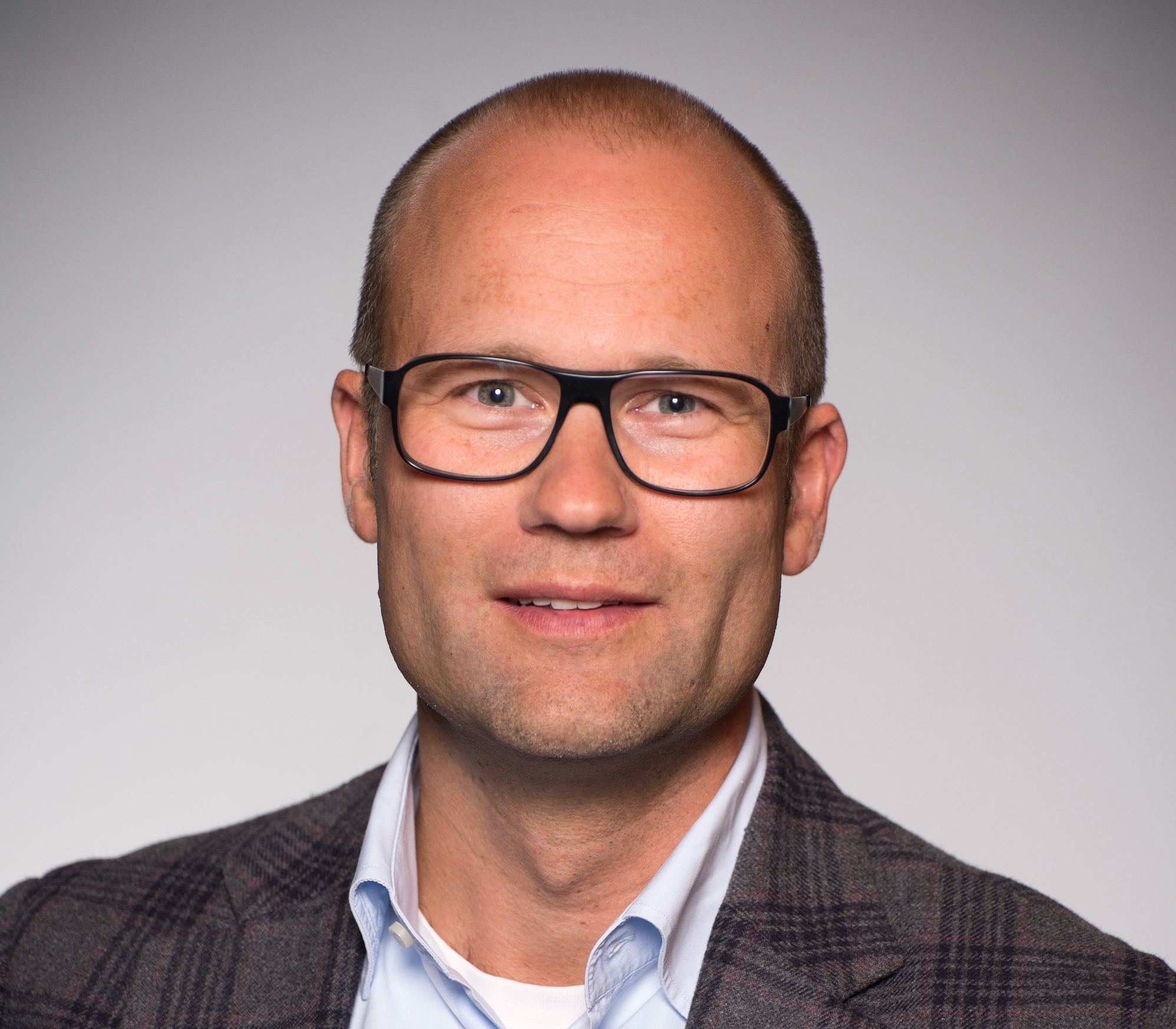Unsere vernetzte Welt verstehen

Die Bewältigung von COVID-19 als Große Herausforderung
Die Bewältigung von COVID-19 erfordert koordinierte, kollaborative und kollektive Anstrengungen, die auch andere große Herausforderungen wie den Klimawandel berücksichtigen. Wie hängt diese Krise also mit anderen großen Herausforderungen zusammen und wie sollten wir mit dem Coronavirus umgehen, der sie ausgelöst hat?
We live in troubled times. Humanity has been sustaining itself by tapping on the world’s resources for millennia; recently, however, it started consuming these resources too fast to replenish them. This has led to a long list of catastrophes we are now facing, such as the climate crisis (IPCC, 2014) and the loss of biodiversity (Díaz et al., 2019). The COVID-19 crisis, the new grand challenge humanity is facing, is not simply the latest addition to this list, but is strongly interconnected with the rest. A key question is, how does this crisis relate to other grand challenges and how should we address the coronavirus that has triggered it?
Grand challenges
There are several overlapping lists of grand challenges, such as those of the Gates Foundation and the United Nations Sustainable Development Goals (SDG). All, however, converge on the notion that grand challenges are fundamental global problems intertwined with social and ecological concerns such as sustainable growth, societal cohesion, and precarious working conditions. Grand Challenges Canada (2011: iv, emphasis in the original) define these as “specific critical barrier(s) that, if removed, would help solve an important societal problem with a high likelihood of global impact through widespread implementation.” All grand challenges have a strong impact on human welfare and well-being. Addressing these requires and elicits coordinated, collaborative, and collective effort.
In recent years, management scholars have joined the effort to understand and tackle grand challenges (George, Howard-Grenville, Joshi, & Tihanyi, 2016). Ferraro and his colleagues (2015, p. 365) perceive grand challenges as complex, uncertain and evaluative.
The first characteristic is complexity: grand challenges are characterized by interconnected problems, feedback loops, tipping points, and nonlinearity. The COVID-19 crisis fits this description. First, the pandemic has triggered a widespread health crisis, whose direct impact is exacerbated by its wider social impact on local communities and the global economy. Second, the pandemic has been increasing both social vulnerabilities and poverty, which in turn amplify the virus’s overall damage in an ongoing feedback loop. Third, many organizations and societies are reaching or have already reached economic tipping points as their financial sustainability is now at stake because of the pandemic’s repercussions on the economy. Fourth, infection rates have been growing exponentially around the world, rather than linearly.
The second key characteristic is uncertainty, i.e. the outcomes are difficult to predict and prepare for—there are many potential paths the future could take. This is why efforts to manage the COVID-19 crisis involve working with different scenarios, models, and computer simulations.
Finally, grand challenges are “evaluative”, i.e. understood and assessed in different ways. This is partly because the scale and complexity of grand challenges means that they transcend not only national borders, but also the boundaries of multiple fields of expertise and jurisdiction. In the case of COVID-19, there have been several competing evaluations of the crisis, both across and within domains of political and scientific competence. What’s more, these evaluations are not constant but have been changing over time as more data are gathered and assessed. Some healthcare experts and policy-makers have criticized the measures taken by various governments as being either too harsh or too soft in terms of their impact on different aspects of life. These judgements have also been changing over time. For instance, the UK government initially seemed to pursue the natural herd immunity strategy, but then revised their approach and shifted towards containment.
Tackling grand challenges
There are three complementary strategies for engaging with grand challenges: participatory architecture, multivocal inscription, and distributed experimentation (Ferraro et al., 2015).
Participatory architecture relates to structures and rules that bring diverse actors from a range of professions, sectors, and interests together in a joint effort. In the case of COVID-19, such joint efforts include technological innovation and initiatives open to the public, such as hackathons that allow anyone to help develop a digital solution to the pandemic. However, such initiatives have yet to become institutionalized in the form of rules of engagement that facilitate interaction over an extended period. Existing initiatives built on the principle of participatory architecture, with the aim of bringing businesses to the table of societal concerns, include the United Nations Global Compact and the Global Reporting Initiative.
Multivocal inscription allows different participants in these joint initiatives to interpret the problem in different ways and to apply their own evaluative criteria. Given that symbols and words mean different things to different people, multivocal inscription allows different groups to use robust (but not rigid) terminology, measures, and processes—including medical, economic, and behavioral models and concepts—so as to work in a coordinated manner in the absence of consensus. With regard to COVID-19, this would mean that actors having conflicting views about the threat and the important trade-offs it poses could still succeed in determining which measures of containment and caution are the most appropriate.
Distributed experimentation allows the participants in a joint effort to explore different pathways that may generate small wins—and small losses. Small wins may lead to success, while small losses can generate learning without causing significant disruption. In the context of COVID-19, distributed experimentation is taking place around the world, often in neither a planned nor an intended manner. For instance, in Spain, people were not allowed to leave their home, even for exercising, until May 2, 2020, whereas the Swedish government did not impose any restrictions on movement. The diverse measures being applied by different governments have created the conditions for large-scale natural experiments whose interim outcomes can help guide decisions on how to handle the crisis henceforth.
Connecting COVID-19 to other grand challenges
The most universal and widely discussed categorization for grand challenges are the 17 SDGs defined by the United Nations. This categorization needs to be treated with caution like any constructed categorization with boundaries. Firstly, all grand challenges, not just the 17 SDGs, are characterized by complexity and uncertainty. Secondly, although grand challenges are classified into different categories (which helps capture the diversity of these problems more precisely), the boundaries are fluid, resulting in interconnections. Consequently, we need to be cautious with categories and cognizant of how they are interlinked. In this vein, Sachs and his colleagues (2019) grouped the 17 SDGs into six categories of deep societal transformations pertaining to social, health, energy, ecological, community, and digital concerns and highlighted the interdependencies and the need for complementary action in order to handle these concerns effectively.
To understand how interconnected grand challenges are, consider the ecological and social challenges the world is facing during the COVID-19 crisis. Some of the virus-containment measures taken by many countries appear to be intensifying social inequalities. For example, income may determine how school closures affect different families: affluent parents with white-collar jobs may be better able to cope with the challenge of home schooling than families living in precarious conditions. Like all grand challenges, the COVID-19 crisis affects all aspects of life: education, employment, family, finance, health and healthcare, humanitarian issues, poverty, equality, social welfare—the list is not exhaustive. In other words, the challenge posed by the coronavirus is interwoven with other grand challenges.
Indeed, the COVID-19 crisis can break rules and routines and, as a result, generate new thinking and worldviews. Yet, it may stabilize and perpetuate the status quo; even worse, it may resurrect old habits and hinder change. For example, the struggle with COVID-19 might revert the progress made in promoting gender equality—one of the 17 SDGs. It is women who primarily shoulder the tasks of home schooling and housekeeping and it is therefore women who might suffer the greatest setbacks in their careers.
Moreover, they are at a higher risk of domestic violence and there are already worrying signs that domestic violence has increased dramatically where lockdown measures have been imposed.
In our view, grand challenges involve complex links and interactions between human, technical, and natural systems, leading to interdependencies. They resist easy fixes and comfortable trade-offs and have unintended side effects and consequences: if you fix one problem, two new ones may spring up.
COVID-19 and climate change
Consider climate change. Some scientists and activists have already linked COVID-19 to climate change. Whilst the reduction in mobility and production has led to a considerable drop in air pollution in many parts of the world, this benefit is not likely to have a significant long-term impact on climate change. Researchers have been warning against buying into the “silver linings” that the temporary drop in pollution, which is attributed almost exclusively to traffic restrictions (while industry production has not ceased), has painted on the ominous cloud of the COVID-19 crisis. Other scientists suggest that rising global temperatures could, in fact, affect the spread of diseases in complex and unanticipated ways.
A second connection between the COVID-19 crisis and climate change concerns the responses to each. Some voices ask why a radical and disruptive response seems possible in the case of the COVID-19 crisis, but not been possible so far in the case of climate change, advocating a similarly urgent and extensive response to the latter. This link is also illustrated in the parallels some commentators draw between the two crises and even in the terminology they use, urging the world to “flatten the curve” of CO2 emissions.
Although most governments have responded to the COVID-19 crisis urgently and drastically, some point out that those who develop measures to counter the pandemic need to consider other grand challenges the world had already been facing before the coronavirus started spreading. This concern begs the following question: in what way might the responses to COVID-19 and climate change differ if we were to tackle both crises simultaneously?
The links between these two crises may not be limited to positive reinforcements, of course. There is the concern that the attention paid to COVID-19 and its impact on the economy will redirect many of the resources previously dedicated to the struggle with climate change. Giving priority to the economy’s recovery may become the new policy imperative in the next year, if not decade, and eclipse the urgent need to tackle climate change. It will be challenging—but necessary—to consider and address grand challenges together, approaching these as an intricate system of interconnected social and ecological problems that demand holistic solutions.
How to tackle COVID-19?
We have argued that tackling the COVID-19 crisis and its consequences require coordinated, collaborative, and collective efforts. It also requires robust action; that is, action that advances a clear strategy, but keeps options open so that it is possible to adapt it to new developments. Furthermore, it requires managing responses and action and employing participatory architecture, multivocal inscription, and distributed experimentation to address the different facets. Finally, for these efforts to succeed, it is necessary to link the COVID-19 crisis to other grand challenges and to take into account how it impacts different societal domains, including the spheres of work and family. The fight against the virus may seem to pose difficult trade-offs between conflicting goals, such as prioritizing lives versus prioritizing jobs. These conflicting goals need to be envisioned as part of the same overarching strategy against the pandemic.
As organizational and societal structures become uprooted, certain societal achievements may be reassessed and questioned. This is why certain measures taken to tackle the COVID-19 crisis, such as restrictions on mobility and social gatherings, are time-limited. At the same time, the crisis is bringing forth debates about established social structures, such as whether the current economic system should be protected or transformed: many critics demand that, instead of restoring the pre-crisis state, we should use the situation as an opportunity to develop and establish alternative economic models such as a universal basic income.
Changing mindsets, organizations, and societies
The COVID-19 crisis is challenging and perhaps will uproot social and societal norms, structures, and practices. Tackling this new grand challenge requires that individuals, organizations, and societies come to terms with volatility, uncertainty, complexity, ambiguity, and paradox (Gümüsay, 2019). To achieve this, it is necessary to develop mindsets, strategies, and practices that embrace diverse and complex views, such as an understanding that protecting health and protecting the economy need to be parts of the same strategy. Such an approach can lead to resilient and elastic responses that bend across grand challenges without being broken by them.
References
Bennett, N., & Lemoine, G. J. 2014, January 1. What VUCA really means for you. Harvard Business Review, (January–February 2014). https://hbr.org/2014/01/what-vuca-really-means-for-you.
Díaz, S., Settele, J., Brondízio, E. S., Ngo, H. T., Agard, J., et al. 2019. Pervasive human-driven decline of life on earth points to the need for transformative change. Science, 366(6471). https://doi.org/10.1126/science.aax3100.
Ferraro, F., Etzion, D., & Gehman, J. 2015. Tackling grand challenges pragmatically: Robust action revisited. Organization Studies, 36(3): 363–390.
George, G., Howard-Grenville, J., Joshi, A., & Tihanyi, L. 2016. Understanding and tackling societal grand challenges through management research. Academy of Management Journal, 59(6): 1880–1895.
Grand Challenges Canada. 2011. The grand challenges approach. Toronto, Canada: McLaughlin- Rotman Centre for Global Health.
Gümüsay, A. A. 2019. Embracing religions in moral theories of leadership. The Academy of Management Perspectives, 33(3): 292–306.
IPCC. 2014. Climate change 2014: Synthesis report. Geneva: IPCC. https://www.ipcc.ch/report/ar5/syr/.Sachs, J. D., Schmidt-Traub, G., Mazzucato, M., Messner, D., Nakicenovic, N., et al. 2019. Six Transformations to achieve the Sustainable Development Goals. Nature Sustainability, 2(9): 805–814.
Ali Aslan Gümüsay is Head of the Innovation & Entrepreneurship Research Group at the Humboldt Institute for Internet and Society (HIIG) and Postdoctoral Researcher at the University of Hamburg. He is also the principal investigator of the DFG network “Grand Challenges & New Forms of Organizing.” His research consists of four streams: values, meaning and hybridity in entrepreneurial settings, grand challenges, innovation and new forms of organizing, societal complexity and engaged scholarship and digitalization, and AI and the future of work/leadership. Twitter: @guemuesay
Patrick Haack is Professor of Responsible Management at HEC Lausanne, Switzerland. He teaches the Grand Challenges strategy project course, which is part of the Master of Management program at HEC. His research focuses on social evaluations, practice adoption, and the application of experiments and formal models to the study of legitimation and institutionalization. He is an incoming associate editor at the Academy of Management Review and has served on the editorial boards of the Academy of Management Review, Business & Society, Journal of Management Studies, and Organization Studies.
Dieser Beitrag spiegelt die Meinung der Autorinnen und Autoren und weder notwendigerweise noch ausschließlich die Meinung des Institutes wider. Für mehr Informationen zu den Inhalten dieser Beiträge und den assoziierten Forschungsprojekten kontaktieren Sie bitte info@hiig.de

Jetzt anmelden und die neuesten Blogartikel einmal im Monat per Newsletter erhalten.
Offene Hochschulbildung
Die Macht der Plattformen: Die Zukunft der Regulierung nach der Europawahl
Rückblickend auf die Europawahlen 2024 zieht dieser Beitrag Bilanz über die Auswirkungen des Gesetzes über digitale Dienste auf die Macht der Plattformen.
KI unter Aufsicht: Brauchen wir ‘Humans in the Loop’ in Automatisierungsprozessen?
Automatisierte Entscheidungen haben Vorteile, sind aber auch fehleranfällig. Ein Human in the Loop könnte helfen. Aber garantiert er bessere Ergebnisse?
Die Vielfalt von digitalen B2B-Plattformen
Dieser Blogbeitrag untersucht die Vielfalt digitaler Business-to-Business-Plattformen und kategorisiert sie nach Governance-Stilen und strategischen Zielen.





